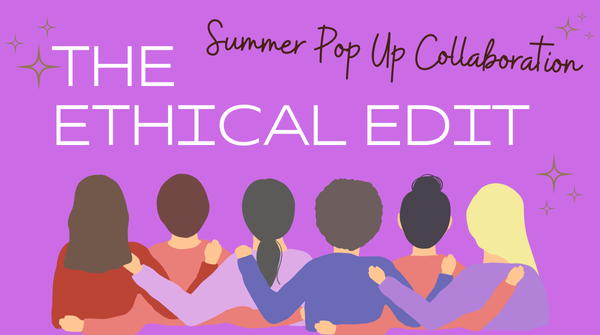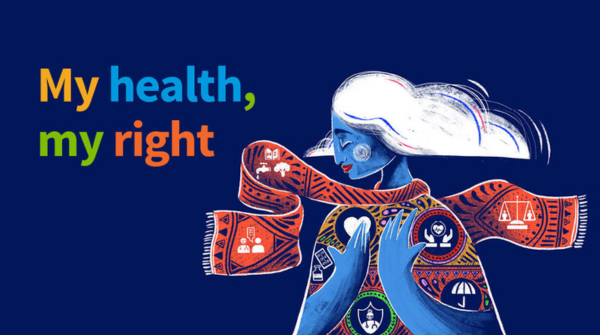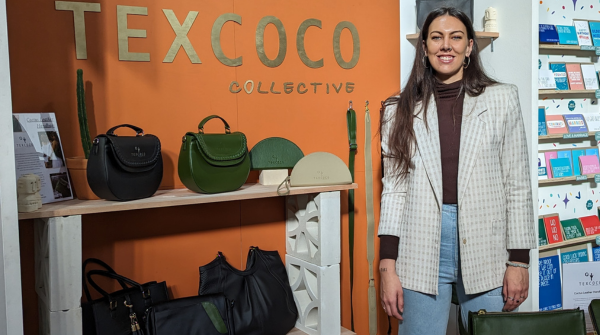Simple changes to be more sustainable.

Less Ego, More Eco - Lessons from a 17-year-old activist
By Alexandra Matthews
Despite comically flopping at most sporting events as a kid I’ve always enjoyed the outdoors – a spark for curiosity, adventure and calm that nature provided. Marine and ocean life especially as I’m lucky enough to live near a beach. As the years progressed, I began studying the earth's wonderfully complex ecosystems and becoming acutely aware of the damage being done. I knew I had to channel my passion. Inspired also by the absolute icon Greta Thunberg, in January 2020 I attended my first climate march with thousands of passionate youth from across the globe. Clothes stuck to the sweat on your legs, posters were held firm and high in the sky, you had been fired up, practically buzzing and chanting for hours. They would have to listen now! The government would switch instantly to clean energy, shiny accessible public transport, implement no fishing areas so that the great barrier reef could become plentiful with fish and foster growth, they would make a national apology to the youth of Australia and take science lead leaps of action… right? Right? Oh naive little Alex, I’d almost laugh at my past self if it wasn’t so depressing.
We save that relentless, shameful, self-talk for calling out billionaire corporations and governments because if “71% of the world’s carbon emissions comes from 100 companies” (cited from The Guardian ) then boycotting support could do a world more healing than choosing a paper instead of plastic straw that one time, ever could. That being said, I think action has to do a lot with working to your strengths and I am a firm believer that we can all contribute in what ways works best for you!
Consumption is a huge thing to consider, (cited from WWF and World Wildlife) it takes “715 gallons… to produce the cotton needed for one t-shirt – that is almost three years’ worth of drinking water”! Fast fashion may be cheaper on your wallet in the short term but with low-quality materials that tear and wear easily that you may be replacing after a few months and considering the abuse of worker’s rights that often go with sweatshops, I would pitch these eight alternative solutions:
- Where do you shop for clothes? Second hand or op shops are quite affordable and have now expanded to online spaces too, for one-off events borrow from a friend or rent an outfit, if you can, invest in ethically made slow-fashion items that you know will last you decades (the green flag after green flag brand you are reading this post from for example).
- What about cleaning products? It is much better to use what you’ve got when you’ve got it but when your items have run their course you could slowly start making sustainable switches such as; a shampoo bar, beeswax wraps, sturdy washable plates rather than paper ones, refillable high-quality water bottle etc. I would advise you to watch out for ‘greenwashing’ but generally the investment in sustainable items can often be cheaper in the long run!
- What about my Superannuation? Yes! This is the money that is trickling into a stream, investing in projects while helping your retirement. Research your Super and evaluate if it aligns with your ethics then make a switch if it's right for you.
- I’ve heard diet is important? Correct again, organic food is more expensive but a possible solution to that is starting your own vegetable patch, sharing with neighbours or having a community garden (could even be a rooftop one). I’ve been vegetarian coming up on four years but I 100% know it’s not for everyone (I’ve got enough protein from lentils, eggs etc and do blood tests every year for check-ups) but simply having a ‘meatless Monday’ with yourself or encouraging friends and family to join is a fantastic way to decrease your carbon footprint.
- Purchase transport emissions of the average Australian to offset your driving for e.g. the company Go Neutral
- Want a more hands-on direct impact? You can join a local beach clean-up group, start a bike to work competition at your school or workplace, join a climate action group where you share the platform of discussion and have like-minded people to protest with.
- Eat at restaurants that use locally produced and in season stock linking to nearby farmers with lower transport emissions is a great option for business owners and brunchers alike.
-
What about electronic cars? The transition into electric vehicles (validly) is financially out of reach for many Australians however communities and shires have already come together to fund charging stations and bulk vehicle orders for their town – perhaps you could advocate for yours to be next?
Intersectionality, I believe is important to recognise indigenous, isolated and island communities are predicted to be hit first by climate change related natural disasters and affected disproportionately making it not solely an issue of environmental but also of P.O.C injustices.
Knowing the impact climate change is already having and is predicted to have but being consumed by the feeling that nobody was listening or being brushed off in a “she’ll be right” way was discouraging and frustrating, to say the least. Was I watching too much news? Was I too young to raise my voice while being taken seriously? What I’ve learnt is that we are so much stronger as a forest where each tree takes rests as needed while the others support, then as a single sapling ready to take on the blaze of the fire, if you will. What I’ve learnt is that we cannot and should not try to be perfect in the face of adversity or our strides for a more equitable and kind world!
I do persist that we have a responsibility, to ourselves, to our planet, to our futures and to our children. But equally, we have an exciting opportunity! It’s so easy to forget that we are not separate from nature, yes we ‘own’ the land of our farms, have systems of employment, have bills to pay, people to see but I am frivolous in my hope that if individually and as a unified collective we can be less ego and more eco driven, enjoy the nature we have left, foster regrowth, educate and be educated, be kind to our ourselves and most of all choose hope.





